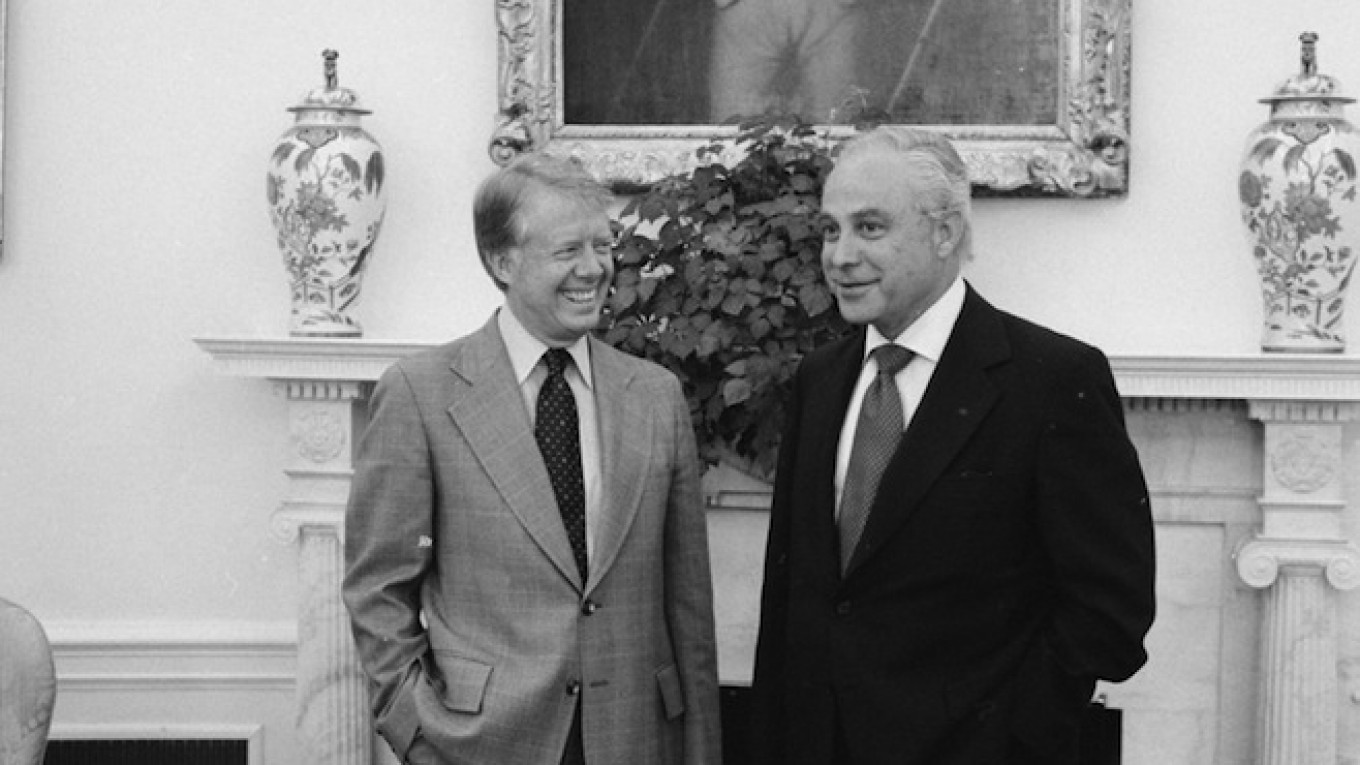Robert Strauss, former U.S. Ambassador to Moscow and an important American political figure for half a century, has died at age 95.
"Bob was one of the greatest leaders the Democratic Party ever had, yet presidents of both parties relied on his advice, his instincts, and his passion for public service — not to mention his well-honed sense of humor," U.S. President Barack Obama said in a statement commemorating the achievements of the United States' final ambassador to the Soviet Union.
Once the head of the Democratic National Committee, Strauss went on to serve as President Jimmy Carter's trade representative and later as President George H.W. Bush's ambassador to the USSR and the first ambassador to Russia, where "he stood up for our interests and values at a moment of immense change," Obama said.
Strauss was sent to Moscow just days after the failed August 1991 coup against Mikhail Gorbachev, witnessing the final days of the Soviet Union and the beginnings of President Boris Yeltsin's Russia Federation before returning to the States to practice law in 1992.
Born in Lockhart, Texas almost a month before the end of World War I, Strauss worked on Lyndon Johnson's first congressional campaign in 1937 while studying at the University of Texas at Austin. After graduating from law school, Strauss took a job with the FBI "watching out for Communists," he told the New York Times in 1991.
The political power broker helped his college friend John Connally win the Texas governorship in 1962, launching his political career as a senior Democratic Party official until the administration of Jimmy Carter, when he began his career in foreign affairs.
Strauss died at his home in Washington and no cause was given. He is survived by his daughter Susan, sons Richard and Robert and his seven grandchildren.
A Message from The Moscow Times:
Dear readers,
We are facing unprecedented challenges. Russia's Prosecutor General's Office has designated The Moscow Times as an "undesirable" organization, criminalizing our work and putting our staff at risk of prosecution. This follows our earlier unjust labeling as a "foreign agent."
These actions are direct attempts to silence independent journalism in Russia. The authorities claim our work "discredits the decisions of the Russian leadership." We see things differently: we strive to provide accurate, unbiased reporting on Russia.
We, the journalists of The Moscow Times, refuse to be silenced. But to continue our work, we need your help.
Your support, no matter how small, makes a world of difference. If you can, please support us monthly starting from just $2. It's quick to set up, and every contribution makes a significant impact.
By supporting The Moscow Times, you're defending open, independent journalism in the face of repression. Thank you for standing with us.
Remind me later.






